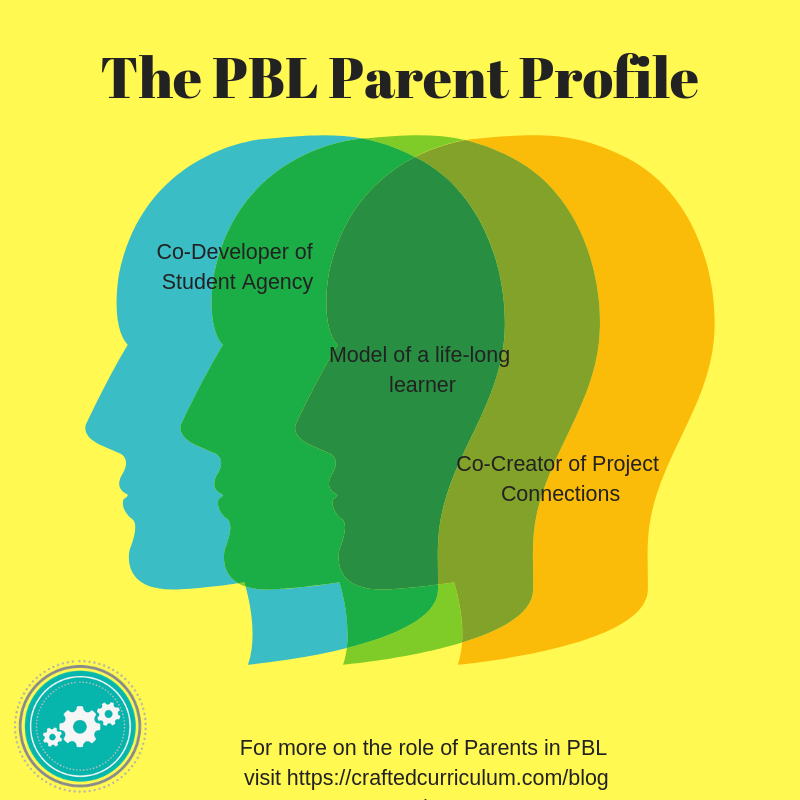In CraftED”s recently published Quick Guide to PBL for parents, Jenny provides some concrete strategies to help parents support their child with project work, at home. One tip Jenny offers up is to ask open-ended questions. Wondering what that sounds like? Check out this model conversation to see what it might sound like between a parent of a student in PBL, using an open-ended question to dig deeper into their learning experiences.

Child: It’s ok. I don’t really know what we are supposed to be learning. And I’m kinda bored.
Parent: Tell me what kinds of things you are researching about.
Child: This construction project in the neighborhood by school.
Parent: Oh you mean the new housing development on the vacant land?
Child: Ya, it’s boring.
Parent: Did you know that area of land used to be strawberry fields? And then it was going to be a shopping mall? And I think i heard that a lot of animals are going to be impacted by that development.
Chid: ya, i kinda know all that-my teacher has been talking about it in science (about human impact on the local ecosystem and stuff) and civics (a bunch of stuff about voting). I just wish I could come up with a plan for the area-and maybe build a model- instead of writing this dumb proposal with my group right now.
Parent: Oh, that’s an awesome idea! Have you talked to your teacher about that idea?
Child: No.
Parent: I think that’s a really cool idea. Why don’t you talk to her after school tomorrow and ask if you could do your idea for a final product. Maybe even show her that you are serious about this and write up a quick proposal or show her a picture of what you are thinking. You should be ready to tell her how it still addresses the project requirements and how it connects to the project guidelines. She would be super impressed and willing to listen to you, I bet.
Child: I don’t think she will.
Parent: Hey, I want you to give it a try; and if she doesn’t respond well then the three of us can come up with a plan to somehow incorporate your ideas, or at least find out the process to go about proposing an alternative product for your next project.
Child: alright, i will give it a try I guess…
In this sample conversation the parents started with an open-ended question, allowed the student to express their experiences, pulled out of them the content they were learning, gave them a concrete suggestion, boosted the child’s sense of self-advocacy and offered to address the issue as a team if needed. In PBL this is the kind of parental partnership that will make the learning experience positive for every child!
Want to learn more about PBL? Check out CraftED’s e-course which includes a special module for parents.